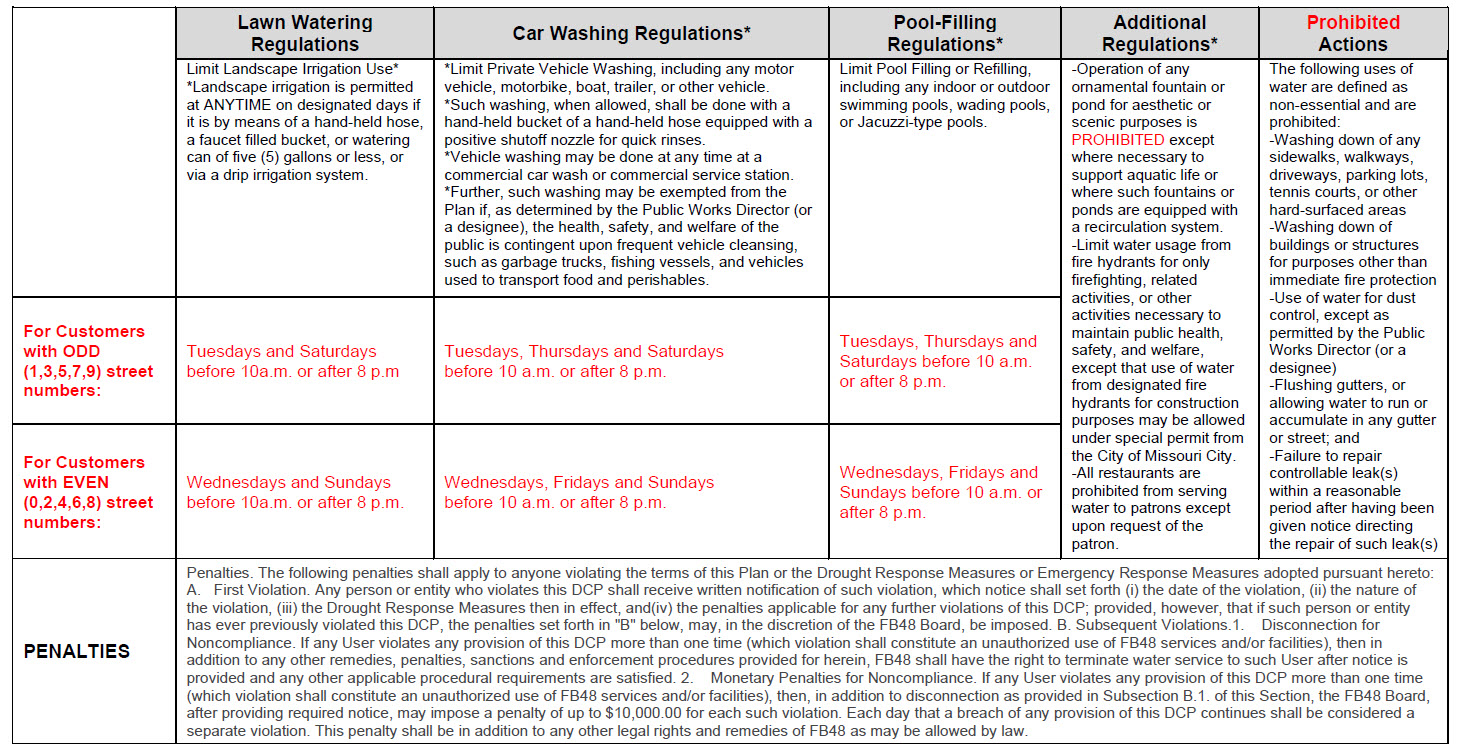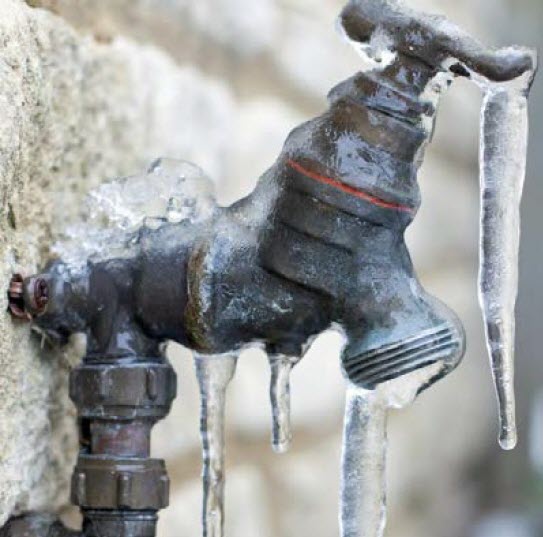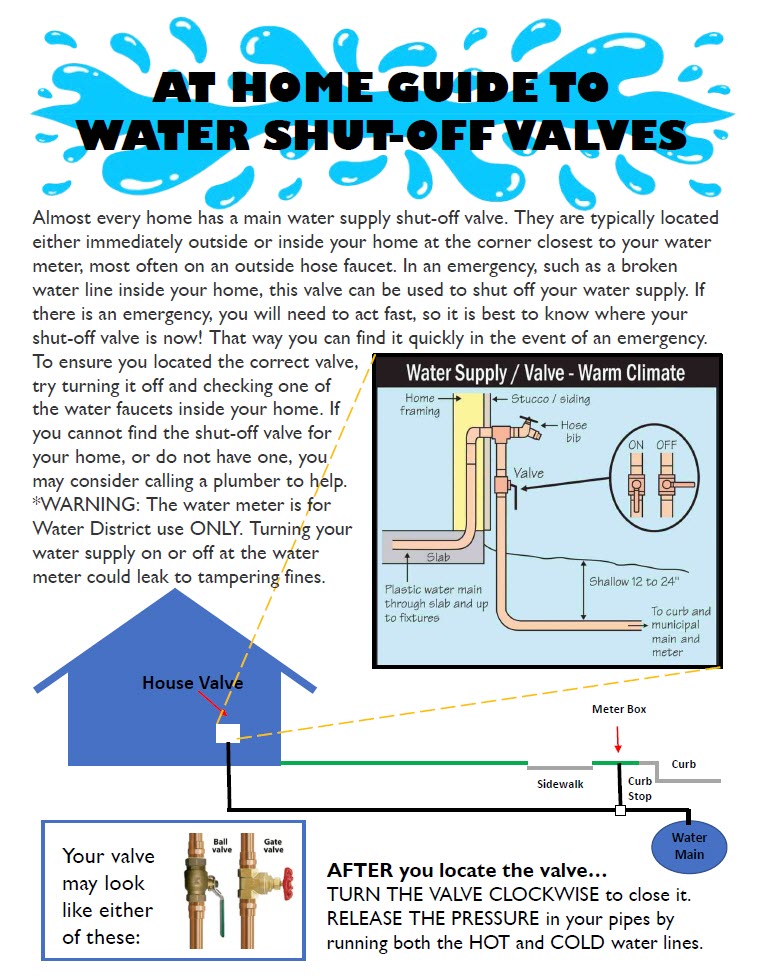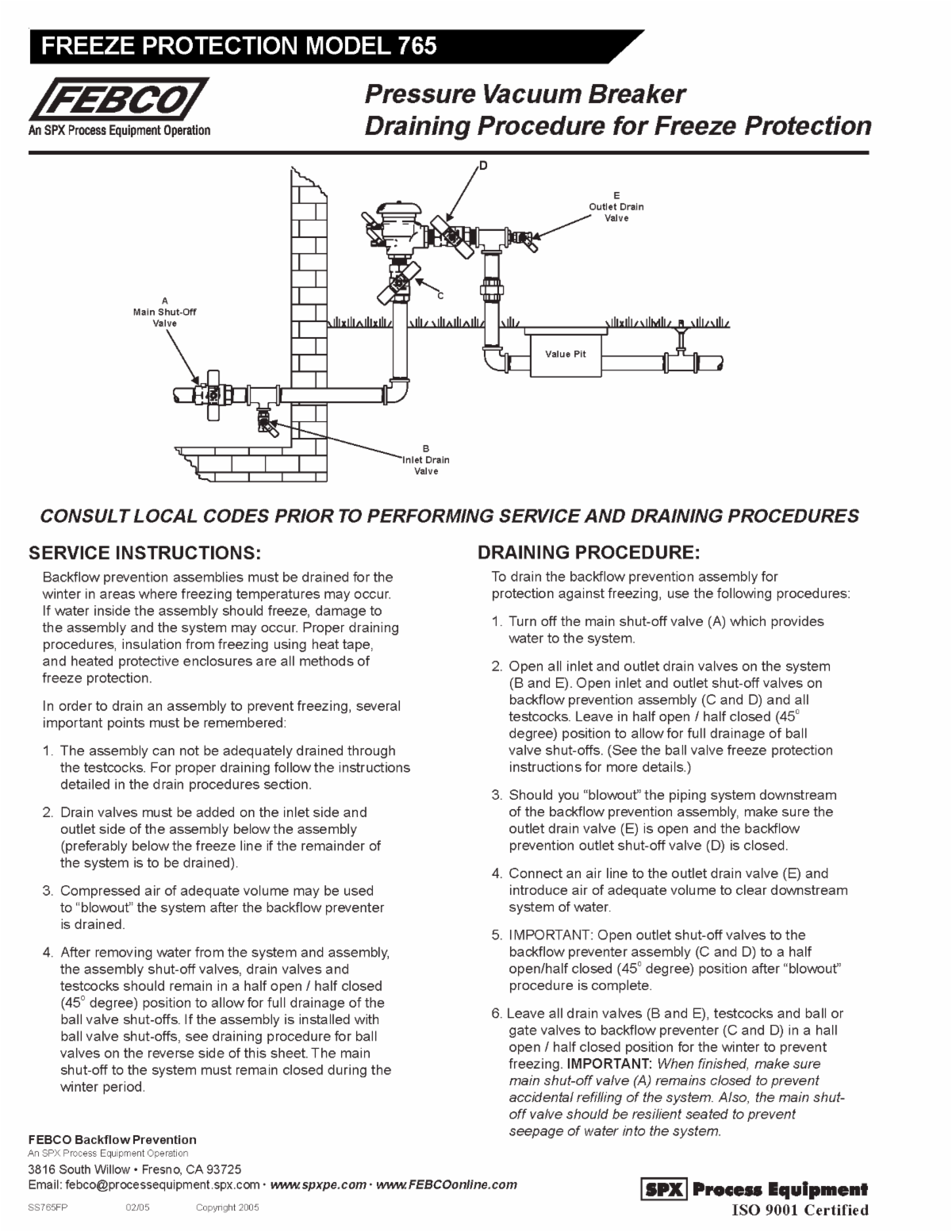Revised Stage 2 Mandatory Water Conservation
Fort Bend County MUD 48 (FB48) revised its Drought Contingency Plan (DCP) on September 14, 2023 to follow that of Missouri City’s (the City) DCP.
This REVISED Stage 2 Notice is updated to reflect those changes. To view the FB48 DCP, visit www.fbmud48.com. To view the City Water Conservation information, visit www.missouricitytx.gov/1192/Missouri-City-water-conservation.
You will receive future notices as conditions change. For questions, call 281-290-6500.
Due to worsening drought conditions, on August 28, 2023, the City of Missouri City implemented mandatory water conservation in some areas of the City INCLUDING FB48 which is within the City’s Mustang Bayou Service Area. These measures were put into effect because water systems are not able to keep up with high demand especially during the “Peak Demand” times in the early morning hours when most irrigation occurs and as residents take showers, wash laundry, and prepare meals. Irrigation usage is the largest user of water. The Ground Storage Tanks (GSTs) at the water plants need to maintain water sufficient to fight fires and to provide potable drinking water to customers.
You can view the Map of Affected Areas (PDF) here: www.missouricitytx.gov/DocumentCenter/View/16037/Water-Conservation-82023. Blue indicates mandatory conservation. Yellow indicates voluntary conservation.
ALL outdoor water usage, including, but not limited to, lawn and garden watering, car washing, and window washing, shall be limited as follows:






